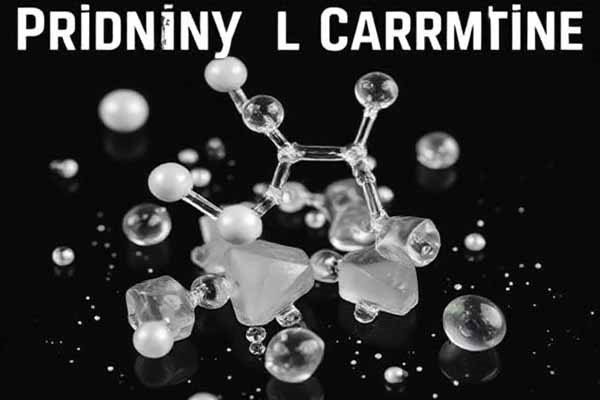In the world of nutritional supplements, Propionyl-L-Carnitine (PLC) stands out as a specialized compound with notable benefits, particularly for cardiovascular health and energy metabolism. Although less well-known than its counterpart L-carnitine, PLC is gaining attention for its unique properties that go beyond basic fat metabolism. Derived from L-carnitine, it includes a propionyl group that enhances its bioavailability and makes it especially effective in certain therapeutic contexts.
What Is Propionyl-L-Carnitine?
Propionyl-L-carnitine is a naturally occurring derivative of L-carnitine, a compound crucial for transporting long-chain fatty acids into the mitochondria — the energy powerhouses of cells. What sets PLC apart is its extra propionyl group, which provides additional energy substrates and allows it to exert vasodilatory and antioxidant effects.
How It Works: The Science Behind PLC
The mechanism of action of Propionyl-L-carnitine involves both its carnitine backbone and its propionyl group. Here’s how it supports your body:
Fatty Acid Transport: Like all carnitines, PLC helps move fatty acids into mitochondria, where they are burned for energy.
Propionyl Group Benefits: The propionyl group is a source of propionyl-CoA, a metabolite that feeds into the Krebs cycle to generate ATP, the body’s primary energy currency.
Nitric Oxide Production: PLC supports the production of nitric oxide (NO), a molecule that relaxes blood vessels, improving blood flow.
Antioxidant Action: It reduces oxidative stress by neutralizing free radicals, which is especially important in aging and vascular conditions.
Key Benefits of Propionyl-L-Carnitine
Improved Blood Flow and Circulation
One of the standout features of PLC is its ability to improve circulation. This makes it particularly useful for individuals with peripheral artery disease (PAD) — a condition where narrowed arteries reduce blood flow to limbs, causing pain during walking. Studies have shown that supplementation with PLC can increase walking distance and reduce leg pain.
Cardiovascular Support
PLC has been explored for its use in heart failure, angina, and cardiomyopathy. By increasing energy production in heart cells and enhancing oxygen delivery, it helps the heart function more efficiently. Its vasodilating effects can also reduce the workload on the heart.
Because of its ability to enhance blood flow, PLC may help men with ED, especially when related to blood vessel health or diabetes. It is sometimes combined with other therapies like acetyl-L-carnitine or phosphodiesterase inhibitors (e.g., sildenafil) to improve erotic performance. Propionyl-L-Carnitine (PLC) does not work the same way as cenforce 200 but it may support erectile function through a different mechanism, especially when related to blood flow or endothelial dysfunction.
Energy and Fatigue Reduction
PLC may offer support for people suffering from chronic fatigue syndrome, fibromyalgia, or age-related energy decline. By facilitating mitochondrial function and energy production, it can reduce feelings of tiredness and improve stamina.
Exercise Performance
Though not as widely studied for athletic enhancement as L-carnitine or creatine, PLC’s energy-boosting properties and circulation improvement can potentially enhance endurance performance, especially in older adults.
Propionyl-L-carnitine is commonly available in capsule or tablet form, typically in doses ranging from 250 to 1,000 mg, taken once or twice daily. For medical conditions like PAD or chronic fatigue, clinical studies have used higher doses (e.g., 1,000–2,000 mg/day), often under medical supervision.
PLC is also available in combination formulations with acetyl-L-carnitine or alpha-lipoic acid for enhanced antioxidant and mitochondrial support.
Safety and Side Effects
Generally, PLC is considered safe and well-tolerated, especially at standard supplemental doses. Mild side effects may include:
- Nausea
- Gastrointestinal discomfort
- Fishy body odor (due to carnitine metabolism)
- Headaches (rare)
People with certain medical conditions, such as seizure disorders, or those taking anticoagulant medications should consult a healthcare provider before starting PLC supplementation.
Who Might Benefit from Propionyl-L-Carnitine?
PLC is not for everyone, but specific groups may benefit significantly:
- Individuals with circulatory disorders(e.g., PAD, Raynaud’s)
- Older adults experiencing energy decline
- People with heart disease
- Men with EDrelated to blood flow issues
- Athletes seeking enhanced endurance
- People with chronic fatigueor metabolic syndromes
A few studies have shown that PLC combined with Acetyl-L-Carnitine can improve erectile function who did not respond well to cenforce 200 or who had age-related ED. In some cases, the combination was shown to be as effective as Sildenafil in the long term, but without the immediate effect.
Propionyl-L-carnitine is a promising and often underappreciated supplement with multi-dimensional benefits — from boosting energy and improving blood flow to supporting heart health and even erotic function. While not a cure-all, it represents an important tool in the world of natural, evidence-based health support.
As always, anyone considering adding PLC to their regimen should consult with a healthcare professional, especially if managing existing health conditions or taking other medications. With the right guidance, Propionyl-L-carnitine can play a significant role in optimizing physical performance, cardiovascular health, and quality of life.

